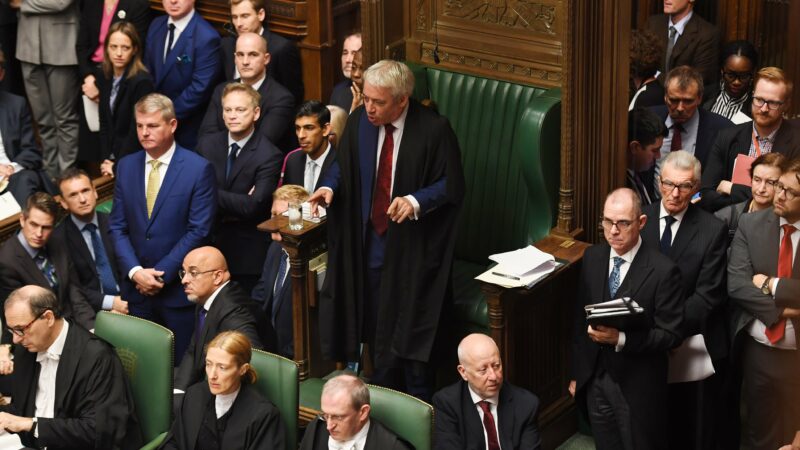
This afternoon, MPs will elect a new Speaker in the House of Commons to replace John Bercow, who stepped down last week.
There are currently seven candidates in the running, including five Labour MPs:
- Lindsay Hoyle – current deputy speaker and MP for Chorley
- Harriet Harman – current Mother of the House and MP for Camberwell and Peckham
- Meg Hillier – MP for Hackney South and Shoreditch
- Chris Bryant – MP for Rhondda
- Rosie Winterton – MP for Doncaster Central
They are joined by Dame Eleanor Laing and Sir Edward Leigh, both Tory MPs.
How does the process work?
Candidates must hand in their nominations by 10.30am, signed by between 12 and 15 MPs. Three of those signatories must come from a different party to that of the candidate. A list of the validly made nominations will be published by the Vote Office by 11am.
The 2.30pm session will be presided over by Kenneth Clarke MP, as the longest-serving and therefore most senior member of the House. The candidates will each have five minutes to address the MPs in turn, with the running order being decided by ballot.
After the last candidate speaks, MPs will have 20 minutes to cast their vote by secret ballot. They can only vote for one candidate and whoever receives more than 50% of the vote will be announced as the new Speaker.
If nobody manages to reach this threshold, MPs will be asked to vote again. In this eventuality, a new ballot will be prepared without a) the candidate who received the least votes, b) any candidate who received less than 5% of the vote, and c) any candidate who wishes to withdraw at this point.
The House will then keep voting until a winner is declared, at which point the new Speaker-elect and the party leaders will deliver a speech. At this point, we’ll know who the new Speaker is, but the process is formally concluded when the Speaker receives Royal Approbation in the House of Lords signifying the Queen’s approval.
By convention, the new Speaker will be expected to sever all political ties to their party to maintain impartiality in their role. The Speaker doesn’t vote on any motion in parliament, except to resolve a tie, and normally the main parties don’t stand candidates in their seat during an election.
Bercow, known for his energetic use of the word “orrrrrrrrder!”, has been a controversial Speaker over his decade in the post. Originally from the right of the Tory party, his main support as Speaker has come from Labour MPs, to the frustration of many of his colleagues.
The Speaker has overseen an increase in the use of emergency debates and urgent questions, changing the way in which parliamentary business normally proceeds. He has overseen a remarkably unstable period as the House of Commons has been at war over Brexit.
It will only be known after the election whether the next Speaker will have to grapple with similarly contentious judgment calls, or instead be presented with a set of MPs who are more decisively Leave or Remain.




More from LabourList
‘Labour’s quiet quest for democratic renewal’
‘Labour promised to make work pay. Now it must deliver for young people’
‘Council Tax shouldn’t punish those who have the least or those we owe the most’